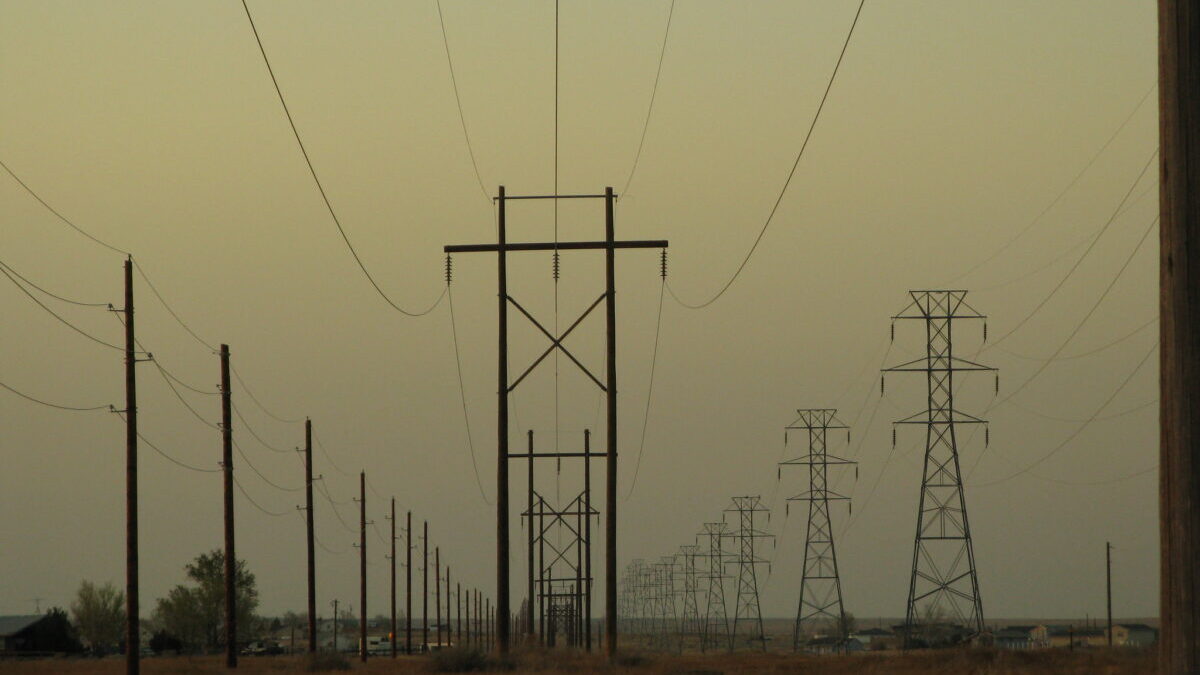
Earth Day doesn’t exactly have a reputation as a conservative holiday. Started by hippies or something in 1970, the first Earth Day events were full of environmental doom and gloom, and included a number of predictions that have turned out to be less-than-accurate. Even today, Earth Day celebrations seem too likely to involve drum circles for conservative comfort.
Yet I have grown to appreciate the sentiment behind Earth Day, and environmentalism generally, a bit more as I’ve gotten older and become a property owner, with kids and a mortgage and a yard. In fact, if I had to choose a rallying cry for conservative environmentalists everywhere, it would be this: Stay off my lawn!
Few cries for justice are as unfairly caricatured as the beleaguered homeowner’s plea for kids to stay off his lawn. In the popular consciousness, the phrase is associated with being old and out-of-touch. It conjures images of elderly men shaking their fist in the air at neighborhood kids for cutting across their property.
Yet is there any sentiment more deeply conservative than the one expressed by telling people to stay off one’s lawn? Would those kids like it if I came to their house and rearranged their video game collections? I don’t think so. People naturally don’t like it when other people mess with their stuff. Well, my lawn is my stuff. It takes a lot of time and effort to keep a lawn looking good. And if I don’t want strangers tracking mud all over it, that’s my prerogative.
Of course, unlike my lawn, I don’t own the Earth (although it is where I keep all my stuff). In fact, sad to say, even in 2018 large chunks of the Earth remain unowned. I say “sad” because, from a conservative environmentalist point of view, that’s a problem.
From Thomas Aquinas to Milton Friedman, great thinkers have recognized that people are more likely to take care of something when they own it. It’s the reason you’re more likely to see litter along the side of a road than on someone’s front yard. When no one owns a resource, this can lead to what’s known as a “tragedy of the commons,” where a resource is used up or spoiled because no one is able or willing to make sure that it remains productive over the long term.
Where possible, therefore, the best conservative solution to an environmental problem is to privatize it. This has been done successfully in a number of areas. For instance, a property-rights approach has been used to avoid a tragedy of the commons in fisheries. There is also evidence that the best way to save some endangered species is to let people make money off them. If that sounds strange, consider that pigs are not in any danger of extinction for the simple reason that they are delicious.
Other areas are a bit trickier. It would be difficult, for example, to divide up ownership of the stratosphere. But to the extent that things like pollution do cause damage to things that I own (whether it be my backyard or my lungs), then that’s a legitimate thing to be upset about. “Stay off my lawn” applies as much to noxious chemicals as it does to neighborhood kids on skateboards.
Of course, how best to respond to these problems can be complicated. Economists have found that as a country industrializes, pollution tends to get worse — at first. Once a country gets rich enough, however, the situation reverses, and greater wealth is associated with improving environmental outcomes. Therefore, it would be a mistake to try to act against pollution in ways that would imperil our continued prosperity.
But we also shouldn’t disregard the harm that environmental damage can have on individuals any more than we would justify seizing a person’s land to build a shopping mall on the grounds that the mall will be more economically productive. Conservative and libertarian economists have come up with several inventive ways to address environmental concerns without harming prosperity. Which of these approaches would work best in a given context is a matter of much debate, and I won’t get into that here. But the point is that there’s nothing inconsistent about a conservative taking environmental protection seriously, especially when doing so is really about protecting people.
It’s still okay to laugh at the drum circles, though.









